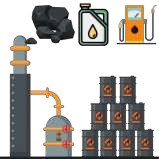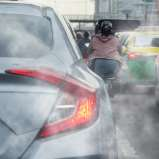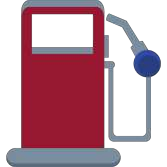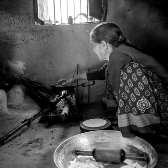EVS Notes for Chapter 12 What If It Finishes…? Class 5 - FREE PDF Download
FAQs on CBSE Notes Class 5 EVS Chapter 12 - What If It Finishes…? - 2025-26
1. Why should we stop engines at a traffic light according to What If It Finishes Class 5 Notes?
We should stop the engine to save on fossil fuels. These fuels are not unlimited. So, it is the easiest way to save a lot of fuel wasted unnecessarily.
2. What is the best alternative to fossil fuels in What If It Finishes Class 5 Notes?
The best alternative to fossil fuels is solar energy. It is clean and does not leave toxic gases when used.
3. What is CNG according to What If It Finishes Class 5 Notes?
CNG means compressed natural gas. It is used to run the engines of different vehicles. It also is used to reduce pollution to a considerable extent in the cities.
4. What topics are covered in the Revision Notes for "What If It Finishes"?
The Revision Notes cover the importance of natural resources, different types of resources, and the consequences of their depletion. They also include conservation methods and their impact on daily life and the environment.
5. How does What If It Finishes Class 5 EVS Notes help in understanding the chapter better?
The notes provide a clear summary of key concepts, breaking down complex ideas into manageable points. This helps students understand the significance of resource conservation and its effects.
6. Are the notes aligned with the CBSE Class 5 EVS syllabus?
Yes, the notes follow the CBSE Class 5 EVS syllabus and cover all the essential topics related to resource management and depletion. They ensure that students are aligned with the curriculum requirements.
7. Does What If It Finishes Class 5 EVS Notes include practice questions?
Yes, the notes include practice questions to help reinforce understanding and test knowledge. These questions are designed to help students review and apply what they have learned.
8. Can these notes be used for quick revision before exams?
Yes, the notes are designed for quick and effective revision. They provide a concise overview of the chapter’s key points, making last-minute review easier.
9. Are the Chapter 12 What If It Finishes Class 5 EVS Notes written in simple language?
Yes, the notes use simple and clear language to make complex concepts easier to understand. This helps students grasp the material more effectively.
10. How can I use the notes to improve my exam preparation?
Review the notes regularly to reinforce key concepts and complete practice questions. This approach helps solidify your understanding and improves exam readiness.
11. Can I download Chapter 12 What If It Finishes Class 5 EVS Notes for offline study?
Yes, the notes are available for download as a FREE PDF. This allows you to study offline at your convenience and have easy access to the material.























